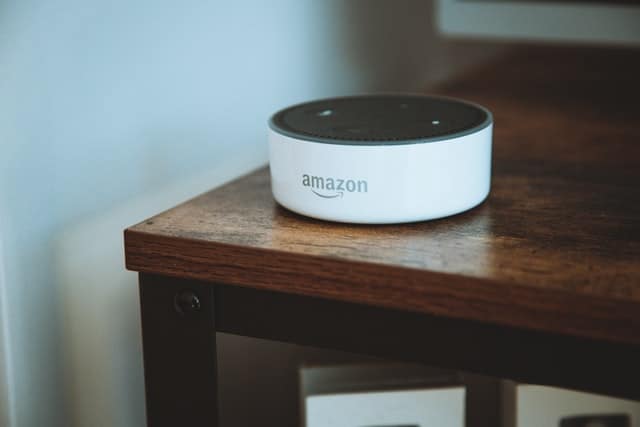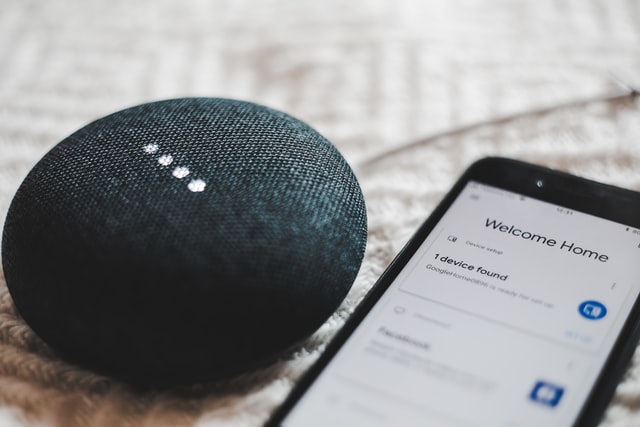First published: December 13, 2021 @ 6:00 pm
Artificial intelligence (AI) is a major force driving technology forward, particularly in business. We can define AI as a type of technology that uses computer algorithms to make decisions, process information, and make predictions.
AI has the potential to change the way we do business in the future. In business activities, artificial intelligence is in use in every sector, including the financial services, healthcare, automotive industries and many more.

How can artificial intelligence drive your business better?
There are lots of benefits for companies to adopting artificial intelligence (AI).
These include improving efficiency and customer service, saving money on IT projects and increasing sales revenue — all without needing additional human intervention or investment.
To make sure you don’t miss out on these benefits, we’ve created this list:
1) Ease in predictive analytics
One of the most common ways we apply AI in business processes is to enable predictive analytics. Predictive analytics uses algorithms to determine the probability of certain outcomes based on certain inputs.
Companies commonly use prediction machines to understand customer behaviour and predict their future actions. For example, an algorithm might determine how likely it is that a particular customer will return to a business after purchasing a product or service.
This data can then develop new products and services based on predicted customer behaviour. For example, an algorithm might determine the probability that a new product will be successful based on previous experiences with similar products.
The algorithm might then suggest ways to improve the product based on its predicted success rate. AI-based prediction machines can also improve marketing strategies.
For example, an algorithm might determine the probability that a new advertisement will generate positive results based on previous advertisements and other inputs such as customer behaviour and competition.
The algorithm could then suggest additional factors that would make the advertisement more likely to generate positive results. This information could then make adjustments for future advertisements or advertising campaigns.
AI as prediction machines
Prediction machines can also improve customer service by predicting customer behaviour and suggesting additional steps that could reduce the likelihood of a negative experience in the future.
For example, an algorithm might determine the probability that a customer will have a problem with a particular product or service.
The algorithm could then suggest additional steps that would reduce the likelihood of problems in the future, such as increasing support from company employees or increasing discounts for customers who have experienced issues with products or services in the past.
AI-based predictive analytics also helps businesses to better understand their business data.
For example, an algorithm might determine the probability that they will change a particular piece of data based on previous behavior and other inputs such as historical performance.
The algorithm could then suggest additional actions that we could take to reduce the likelihood of data changes in the future. This information can then make better decisions about business operations and improve business performance.
The ability for businesses to make accurate predictions about their customers’ behaviour can provide substantial business outcomes, improve customer experience and reduce the cost of operating a business.
The drawback of predictive analytics
Predictive analytics aren’t always accurate, however, which makes them especially useful when we combined them with other techniques.
They can map how a potential customer behaves, predict their future actions, and identify opportunities for new business scenarios.
A predictive model might also suggest an additional feature or benefit that would make the customer more likely to purchase the product or service in the future.
Similarly, predictive models can improve response times for customers who have placed orders with a business.
The models can then determine which customers are most likely to have unsatisfied experiences and alert customer service teams to take steps to resolve the issues before they become major problems for the business.
In banking, they typically build AI-based predictive analytics using historical data about loan default rates and other factors that could affect future behaviour.
They then combine this information with various inputs such as customer characteristics, interest rates, and other variables to make predictions about which customers will experience problems in the future.
They then combine the predictions with data about actual loan performance in order to determine how well each model is performing over time. By combining data from multiple sources, predictive models can provide a more accurate assessment of customer behaviour.
2) AI will make your business more competitive
AI and other advanced technologies will improve the efficiency of your business.
For example, a medical system that uses artificial intelligence can read a patient’s vital signs and medical history, analyse the data, and determine the best course of treatment for that patient, all without a doctor being present.
3) Using AI in business can reduce costs
Businesses that use artificial intelligence will have lower costs because they won’t need as many human resources, training, etc. AI can dramatically reduce the number of people needed to accomplish tasks in your business.
For example, AI-based products can easily automate data entry. The data entry process for this product involves entering data from multiple sources into a single database to create reports.
The current process involves about 100 different people typing into individual screens, copying and pasting information into multiple fields manually.
4) AI can automate tedious tasks
AI can help you automate a wide range of tedious tasks by enabling machines to complete those tasks more efficiently than humans can.
They can already screen videos for potential content, translate language, perform pattern recognition, identify faces in photos and track cars. AI systems can also automate data collection, reduce manual errors and improve quality control.
By using AI, companies can move away from the office to become “automation centres” that reduce labour costs while improving productivity and reducing risk.

AI is becoming increasingly important for businesses because it can provide useful tools for improving business performance. It can improve many aspects of business, including your product development, marketing strategies, and customer service.
AI is useful because it can work faster and more efficiently than humans.
However, it is important to remember that not all business operations are able to adopt these technologies due to the high cost of technology and hiring skilled staff who are familiar with these products.
Find other related articles and many more useful automatization tips on WorkDeputy blog!





